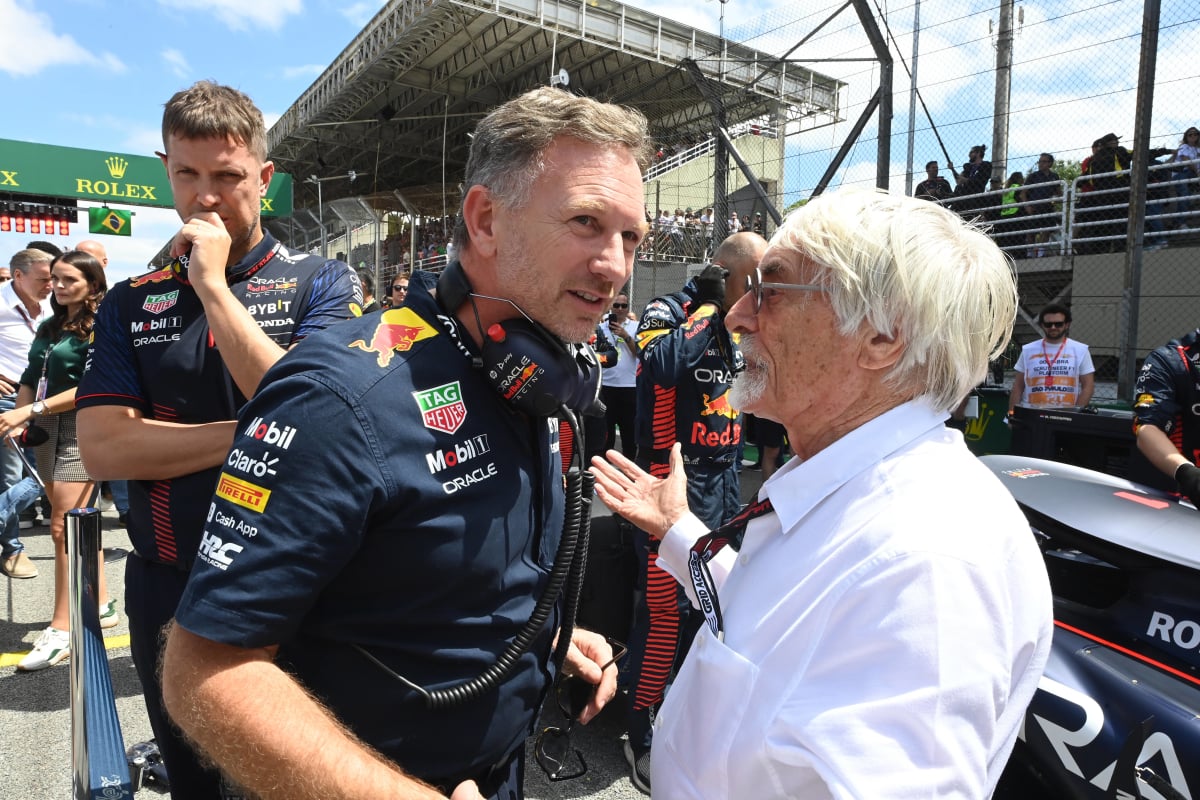New Christian Horner Partnership Could Be a…read more
The Formula One world was rocked recently when Christian Horner, one of the sport’s most successful and polarising figures, officially parted ways with Red Bull Racing. Having led the team since 2005 and overseeing an era of dominance with Sebastian Vettel and more recently Max Verstappen, Horner’s sudden departure has sparked a storm of speculation about his next move. Now, with rumours swirling that Horner is being courted by multiple teams, the most intriguing — and potentially controversial — development is a possible link to Alpine, a team languishing at the bottom of the constructors’ standings.
Alpine has been in disarray throughout the 2025 season. Currently rooted to last place in the championship, the team is struggling both in terms of performance and direction. Their inconsistent point-scoring form and internal management challenges have left them in a crisis that requires immediate and drastic change. In this context, Christian Horner appears to be a perfect candidate to revive the Enstone-based outfit. His proven track record, tactical mind, and leadership skills could serve as the remedy Alpine so desperately needs to become a competitive force in Formula One again.
However, the rumour mill doesn’t stop with Horner alone. Whispers within the F1 paddock suggest that he may not be coming to Alpine solo — a potentially explosive twist involves a return of Bernie Ecclestone, the 94-year-old former F1 supremo. The notion of Ecclestone re-entering the sport, even in a limited capacity alongside Horner, has been met with immediate alarm from many fans and pundits. While some hail Ecclestone as the architect of modern Formula One, others view his return as an anachronism that threatens to undo the progress the sport has made in recent years.
Ecclestone was instrumental in transforming F1 from a niche European sport into a global spectacle. From 1987 to 2017, he orchestrated television rights deals and commercial packages that brought enormous financial growth to the sport. Under his watch, Formula One expanded into new markets, embraced corporate sponsorships, and became a massive international entertainment product. That legacy is undeniable. However, so too is the baggage that comes with it — particularly Ecclestone’s outdated views, controversial statements, and the damage they’ve done to the sport’s image in a more socially conscious era.
His return, especially in an advisory or leadership role within a team like Alpine, would be starkly at odds with Formula One’s current trajectory under Liberty Media. Since 2017, the sport has taken significant steps toward inclusivity, openness, and fan engagement, expanding its reach to younger audiences and more diverse demographics. Initiatives like the F1 Academy for women, the “We Race As One” campaign, and the embrace of celebrity culture — from A-list stars on the grid to the highly anticipated F1 movie — mark a clear break from the Ecclestone era.
One of the most divisive elements of Ecclestone’s legacy is his history of inflammatory comments, particularly those directed at Lewis Hamilton. The seven-time world champion, who has become a global icon for not only his talent but his activism and style, was frequently the target of Ecclestone’s jibes. From dismissing Hamilton’s fashion choices to questioning his involvement in Hollywood and activism, Ecclestone’s comments reflect an attitude that is no longer acceptable in modern sport. His failure to support Hamilton’s push for racial equality and his tendency to belittle the Briton’s broader influence have drawn sharp rebukes from fans, journalists, and fellow competitors alike.
Moreover, Ecclestone’s views on women in motorsport have been particularly damaging. In 2016, he infamously stated that female drivers should not be “taken seriously,” a comment that sparked backlash across the motorsport world. British driver Alice Powell called out Ecclestone’s remarks for their potential to dissuade sponsors from supporting talented female racers, thereby reinforcing the very barriers women are trying to break in the sport. F1’s decision to launch and promote the F1 Academy shows a clear intent to empower female talent — something that would be undermined by Ecclestone’s return in any capacity.
If Formula One is truly committed to building a more inclusive, dynamic, and forward-thinking image, then any association with figures like Ecclestone must be carefully scrutinised. While Christian Horner’s involvement with Alpine might bring the leadership and expertise the team needs, a partnership that includes Ecclestone could severely damage the sport’s credibility. The optics of welcoming back someone whose views are consistently at odds with F1’s modern principles would alienate the very audience the sport is trying to attract.
It is not enough to consider what Ecclestone once did for F1 — the sport must consider where it is headed. Reinviting the ghosts of its past, no matter how successful they were in their time, risks halting its evolution. With Liberty Media and a new generation of drivers and fans pushing Formula One into a more socially conscious and globally relevant era, any regression could be fatal to its momentum.
In conclusion, Christian Horner’s next move is bound to be closely watched — his strategic mind and competitive spirit could transform a struggling team like Alpine into contenders. However, the shadow of Bernie Ecclestone looms large over this potential partnership. Should Formula One facilitate Ecclestone’s return, even indirectly, it would be making a statement about whose voices and values it prioritises. And that, more than anything, could turn this partnership into a nightmare for a sport that has worked so hard to change for the better.




